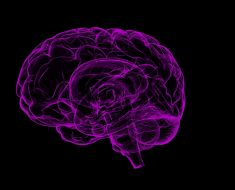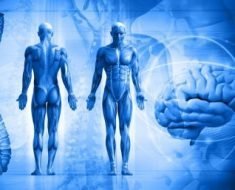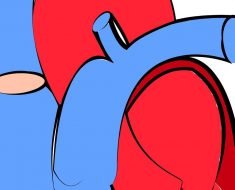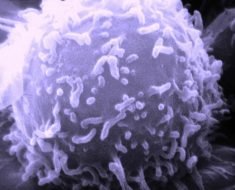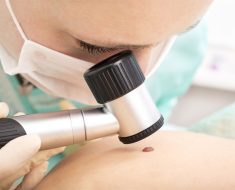When Kevin Duane saw his wife Alyssa sprawled on the floor of their kitchen, surrounded by an EMT crew, he feared she had been attacked in a home invasion.
The large goose egg on her forehead prompted police to suspect she was a victim of domestic abuse.
Actually, Alyssa was having a stroke.
It was around 11 a.m. on July 13, 2017. Alyssa had spent the morning caring for the couple’s 11-month-old daughter, Maggie, and was preparing for her afternoon shift as a pharmacist when she collapsed, thudding her head against the tile floor. Alyssa couldn’t stand or talk.
“I was just sort of grunting,” she said. “I had my phone in my hand, but I just couldn’t dial.”
Maggie was due for a bottle, so she went to her fallen mother. She cried herself to sleep in Alyssa’s arms.
About 2:30 p.m., Kevin’s aunt became worried. She was supposed to babysit Maggie while Alyssa went to work. She called Kevin to see if he knew why they were late.
Kevin called Alyssa. She answered, and all he could hear was moaning. So he called 911.
With paramedics on the way, Kevin also sped to the couple’s Jacksonville, Florida, home. Along the way, he imagined what might have happened to his 28-year-old wife, fearing that she might’ve been victim of a home invasion, as happened recently to a close friend.
“A medical event wasn’t in my mind at all,” he said.
By the time he arrived, an EMT team had already broken down the door and was assessing Alyssa’s condition. The police pulled Kevin aside for questioning while Alyssa was transported to the local trauma hospital.
Blood flow to Alyssa’s brain had been blocked, preventing her brain cells from getting oxygen. This is an ischemic stroke, the more common kind.
But what caused that to happen? Doctors aren’t sure, putting it in the category of a cryptogenic stroke; this happens in 25 to 30 percent of ischemic strokes.
Stroke is the fifth-leading cause of death in the U.S. and a leading cause of long-term disability for adults. May is American Stroke Month, a great time to learn the risks and warning signs.
Alyssa did not have any risk factors or a family history of heart disease that would increase her risks. In retrospect, the only clue was a headache and nausea the day before; while severe enough to keep her home from work, it wasn’t a red flag for anything so drastic.
The first few days of Alyssa’s recovery were stressful.
“There wasn’t a lot she could say. She couldn’t walk or even feed herself at first,” Kevin said. “We didn’t know what to expect.”
Alyssa spent five days in the hospital, then five weeks in a rehabilitation center. She underwent intensive speech, occupational and physical therapy. Once she regained the ability to walk a few steps and maintain a simple conversation, she transitioned to an outpatient program.
Regaining her independence, and her ability to care for Maggie, took longer.
She resumed driving earlier this year, her car retrofitted with a left-foot accelerator because her right foot still doesn’t move normally. Other effects from the stroke include aphasia or the inability to find the right words at times and coordination when writing, though both are improving.
Perhaps the best sign of her recovery: She returned to work Monday.
She hopes to eventually return to running.
“I just want to get back to normal, as normal as things can be now,” she said.
Kevin has known Alyssa since they were freshmen in high school, so he detects even the slightest changes, such as less sarcasm and joking. He’s thrilled that their problems are so minor.
“We’re extremely lucky to be where we are today,” he said. “Everything isn’t the same, but things are much more back to normal than I expected.”
Kevin said the experience has changed his perspective about stroke and other debilitating medical conditions.
“I always thought of heart disease and stroke as something that happens to people who had high risks or brought it on themselves,” Kevin said. “It’s important to minimize your risks, but it can happen even if you follow the rules and live well.”
The Duanes participated in the First Coast Heart Walk in Jacksonville in November, bringing a team of supporters called “Alyssa’s Squad.” They were the ones wearing shirts that read “Keep Moving Forward.”
Alyssa hopes her story will raise awareness that stroke can happen to anyone and advocate for more research on strokes in young people.
Source: Read Full Article
